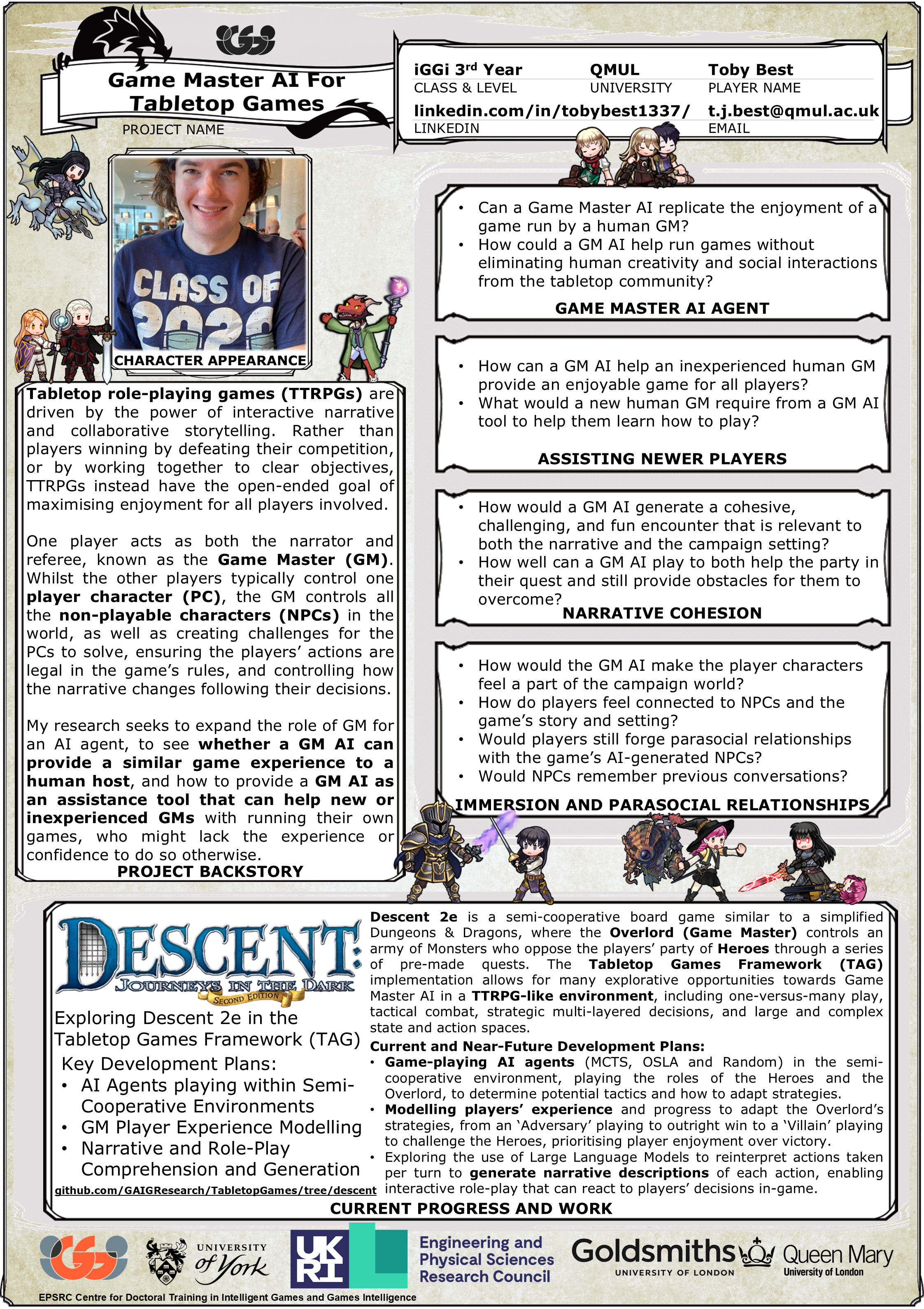Game Master AI for Tabletop Games

In many board games, tabletop games, and multiplayer video games, participants are expected to play equal roles, with identical opportunities and actions available each turn. Everyone involved has the same set victory conditions each time the game is played, with a general aim to win either by eliminating the competition, or working collaboratively towards a common end goal. The Tabletop Games Framework (TAG) project has documented examples of Artificial Intelligence (AI) agents implemented to find the optimal strategies within both adversarial and cooperative games, with implementations of games such as Uno, Exploding Kittens and Pandemic to name a few.
There is a subset of tabletop games, known as tabletop role-playing games (TTRPGs), which are driven by the power of collective storytelling and interactive narrative of its participating players, rather than dedicated rules that lead towards a preset path to victory. These games, such as Dungeons & Dragons or Call of Cthulhu, are more asymmetrical in play compared to others, and have a more open-ended goal overall - maximising player enjoyment for all participants, as opposed to strictly defeating all of the enemies in combat. This involves one player taking the role of Game Master (GM) or Dungeon Master (DM), who acts as both narrator and referee, to guide the other players through the narrative of the game.
Each player traditionally controls only one player character (PC) to interact with the world. The GM, meanwhile, controls all of the non-player characters (NPCs), antagonists and encounters within the campaign behind the screen, including how the world reacts to the PCs’ actions and how the narrative develops from these resulting interactions, as well as ensuring that the actions the players and NPCs take are legal within the game’s rules. Additionally, compared to traditional games, there are no true ‘failure’ or ‘victory’ states, as campaigns can continue until players lose interest or the narrative is deemed ‘complete’. Even the event of a ‘total party kill’ (where all PCs are considered defeated) can drive the narrative in a new unexpected direction if there is still interest in continuing to play the campaign.
This research project therefore seeks to expand the role of GM for an AI agent, developing on previous research on tabletop games and human-AI interactions. Tabletop role-playing games frequently involve high-level strategic decision-making and forward-planning in order to make any progress towards completing the challenges put before the players. There is a sense of unpredictability towards the game genre, particularly due to the complexity and interconnectivity of the rules and the player’s available actions, which can make it less straightforward for AI agents to plan out their turns. Thus, they offer large and complex action and state spaces, which makes them a suitable environment to train and test AI agents within.
The objective of this research is twofold: one, to investigate whether an AI agent could act in the role of Game Master in a tabletop role-playing game, and how to measure the aspects required in order to do so, such that it ensures that player actions are legal, can control the narrative’s flow in such a way that it makes logical and immersive sense, to provide a similar game experience to that of a human host; and two, to explore how to make TTRPGs more accessible to newer and inexperienced GMs who may need some guidance with running their own games, by examining what is required to create an assistance tool to act as a co-GM and ease some of the burdens of the preparation required behind the Dungeon Master’s screen before each game session.
You can learn more about my research topic on my iGGi page here.